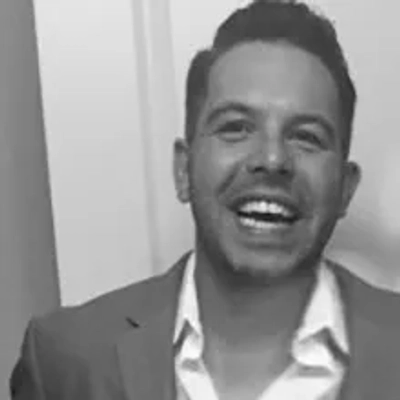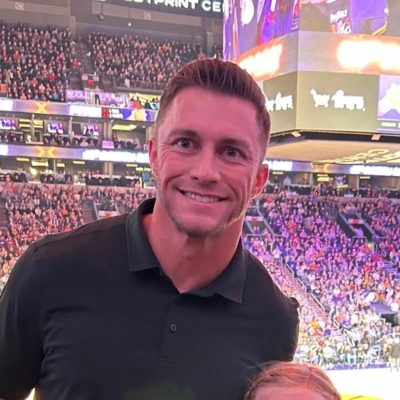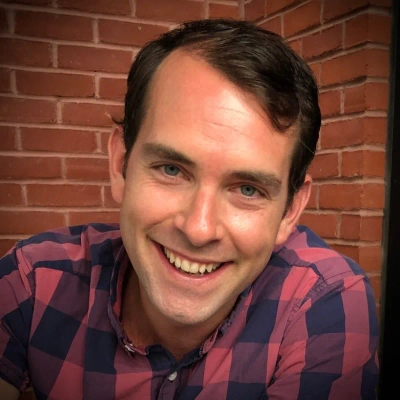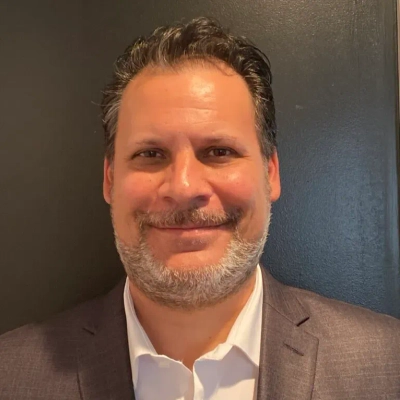25 Ways to Build and Maintain Team Culture in Your Small Business
Building and maintaining team culture is crucial for small businesses, as demonstrated by expert insights from successful business owners who have implemented effective strategies. From weekly wins that build trust to transparent data sharing that boosts performance, these 25 practical approaches offer clear pathways to create a thriving workplace environment. Small business leaders will discover actionable techniques that foster authentic connections, empower employees, and create the psychological safety needed for sustainable growth.
Weekly Wins and Lessons Build Trust
Culture isn't built in offsites or motivational posters. It's built in the small habits that shape how a team works together every day. One simple practice that helped us build and maintain a strong team culture in a small business environment was introducing Weekly Wins + Lessons—a 15-minute ritual where every team member shares one win from the week and one lesson they learned.
What makes it work isn't the format. It's the mindset behind it. Most teams only celebrate big outcomes—revenue milestones, major launches, hiring announcements. But culture isn't held together by big moments. It's held together by momentum. When people feel their work is seen, their progress matters, and their mistakes aren't punished but learned from, trust grows fast. And trust is what makes a team resilient through chaos.
At first, not everyone loved the idea. Some thought it sounded like another fluffy team-building exercise. But within a few weeks, something changed. People stopped hoarding learnings. They started sharing problems earlier instead of hiding them. Collaboration improved because people had visibility into what others were working on. Wins became contagious. Lessons became accelerators. And when new team members joined, they didn't have to guess what mattered to us as a company—they experienced it.
The impact? Retention went up. Burnout went down. Meetings got faster because people were already aligned. Performance improved because the team cared—not just about their own tasks, but about each other's progress. Culture stopped being a poster on the wall and became a weekly conversation we owned together.
If you want strong team culture, don't talk about it—practice it. Create rituals that make people feel connected to the mission and to each other. Culture is not what you say. It's what you repeat.
Empowering Autonomy Sparked Creative Solutions
One of the most important ways I've built a positive team culture at Cafely was learning to step back from micromanagement and truly trust my team's capabilities. I initially thought that reviewing every decision was necessary for quality control, but this approach was actually stifling creativity and slowing our progress significantly. After deliberately giving my team more autonomy and decision-making power, I witnessed them generating innovative ideas that exceeded my expectations. This cultural shift toward trust and empowerment not only boosted team morale but directly contributed to improved business performance and more efficient operations.

Remote Team Celebrates Small Wins
About a year ago, I started a Slack channel at ShipTheDeal just for celebrating small wins. Since we're all remote, seeing someone give a quick shoutout like "hey, thanks for the help" or "great job on that report" has made a real difference. It's small, but people started noticing what other teams were doing more. I honestly think it's kept our team closer and is a big reason people have stuck around.
Hiring for Culture Enables Sustainable Growth
I've built our team culture by making cultural alignment a top priority in our hiring process. This approach has allowed us to maintain workforce autonomy while growing our team by nearly 50% even during widespread tech industry layoffs. Our focus on culture has directly contributed to sustainable long-term growth because team members naturally work toward our shared vision without needing excessive oversight. This cultural foundation has proven especially valuable since we've been able to scale without outside investor pressure dictating our pace or priorities.

Leaders Who Share the Work Build Loyalty
At TX Home Buying Pros, I learned culture isn't something you talk about in meetings. Last month I was hauling furniture into a property at 7pm and scrubbing baseboards before a showing. My agents notice when I show up for walkthroughs instead of just sending emails. They work harder when they see me getting my hands dirty too. Our deals close faster because everyone knows we're in this together, not just boss and employees.
Sharing Mistakes Creates Psychological Safety
One of the most impactful things we did to build culture as a small team was something that would make most founders cringe: we started documenting and sharing our mistakes — publicly, within the team. Every week, someone posts a "Here's what I messed up" note in Slack. No sugarcoating, no polished takeaways — just raw honesty. And we all add comments like "I've done that too," or "Here's how I handled something similar."
It sounds small, but it changed everything. It built psychological safety faster than any team-building retreat or values deck ever could. Instead of pretending we're all operating at 100%, it normalized failure as part of progress. People started experimenting more, taking ownership faster, and asking for help earlier — which made us way more adaptable.
The surprising part? Our productivity actually spiked after we started doing this. It stripped out the quiet fear that slows teams down — the "what if I screw this up?" energy that kills creative risk. Once people realized mistakes wouldn't tank their reputation internally, we moved faster, shipped more, and had way less internal politics.
If I had to put it simply: vulnerability scaled our execution speed. And that's not a sentence I ever expected to write.

Managers Experience Frontline Work Firsthand
We started having our restaurant managers work regular Friday dinner shifts on the floor with the team. It changed everything. They saw what the rush actually felt like, the constant customer demands, the moments when things went wrong. Our turnover dropped and service got noticeably better. When you share the real work, people know you're on their team. It keeps leaders honest.

Learning Investment Transforms Business Ideas
We started paying for courses at Titan Funding and giving people dedicated learning time. The schedule was a mess at first, but then a team from a lending compliance seminar spotted a regulatory hole we almost fell into. That saved us a bundle. Now people are pitching more ideas and seem more engaged. When you invest in your team's learning, they pour that energy back into the work. It's that simple.

Employees Test Products Before Launch
Every team member is part of our product development process. Before we consider a public launch, our marketing, operations, and customer service teams all use the new formulas at home. They give direct, unfiltered feedback on everything from the texture to the results. This makes our mission of creating safe, effective products a daily reality for everyone, not just a slogan on a wall. It builds a culture where everyone feels like a co-creator.
This directly improves our business results. When our ad manager writes copy, she's speaking from her own experience using the product on her child's sensitive skin. Our customer service team can offer genuine advice because they've faced the same skin challenges. This authenticity resonates with customers and builds trust. It turns every employee into a true brand advocate, which is something you can't buy with company outings and corporate swag.

Radical Support Creates Exceptional Retention
We built our culture on a principle of radical support, particularly for our team in Ukraine. This means providing resources for relocation, ensuring stable internet with Starlink terminals, and offering flexible schedules to manage personal safety. We treat their security as a primary business metric, not just an HR benefit.
This investment created immense loyalty and resilience. Our developer retention rate is over 98%, which is almost unheard of in the tech industry. This stability means our clients' projects are never derailed by team turnover. They get consistent, focused work from engineers who are deeply committed because they know we are deeply committed to them. That trust is our biggest competitive advantage.

Team Ride-Alongs Strengthen Service Standards
One way we've built and maintained team culture at Green Home Pest Control is by having the entire team ride along together during training and service refreshers. It's not just about learning techniques—it's about building connection and consistency. When new and experienced technicians share the same truck for a day, they trade real-world advice, talk about challenges, and see firsthand how we treat customers. That shared experience keeps everyone aligned with our service standards and values.
Investing in culture this way has made a big difference in retention and performance. Our team takes real pride in their work because they feel part of something, not just on a route alone. It's led to stronger customer relationships, more referrals, and a crew that genuinely enjoys representing the company.

Community Service Builds Meaningful Connections
For us, one of the best things we ever did for team culture was shutting down the office a few times a year to volunteer together. It started small—one summer we spent a day cleaning up the grounds at the local Senior Center in Olympia. It wasn't some grand plan; we just wanted to do something good as a team. But what surprised me was how much that day changed the way the crew interacted afterward. Guys who barely talked in the shop were laughing and joking while painting fences or hauling brush. The next week, the energy back at work was completely different—more relaxed, more connected.
Since then, we've made community service a regular part of what we do. Every time we step away from the job and serve together, it reminds us that we're part of something bigger than pest control. It's built trust and pride that shows up in how our technicians treat customers and how long they stick around. The investment isn't money—it's time and intention. That's what's built a team that cares about each other and the people we serve, and I'd take that over any marketing campaign or bonus program any day.

Handwritten Thank-You Cards Foster Pride
One thing that's made a huge difference in our team culture at Rowland Pest Management is handwritten thank-you cards. Every new hire gets one from me after their first week, and every team member gets one now and then when they go above and beyond. I started doing it early on because I remembered how it felt in my retail days when my hard work went unnoticed. The first time I wrote a note to one of our techs—just a quick "thanks for taking care of that customer and handling it like a pro"—he told me no boss had ever done that for him before. That moment stuck with me.
This simple gesture has become a company-wide habit, with managers now writing cards for their teams as well. It has fostered pride and connection, as employees know their efforts are recognized. This shift has improved customer service, teamwork, and overall morale. Since adopting this practice, turnover has decreased, reviews have improved, and our team feels more unified. A few minutes spent on a handwritten note can have a greater impact on culture than any meeting.
Transparent Data Sharing Boosts Deal Volume
I've built our team culture around transparency and data-driven decision making - every Monday we have what I call 'numbers meetings' where everyone sees exactly how the business is performing, from lead conversion rates to profit margins on each deal. Coming from an engineering background, I believe people perform better when they understand the 'why' behind what we're doing, so I share everything openly rather than keeping team members in the dark. This transparency has directly boosted our deal volume by about 30% because when my team sees how their individual efforts impact our overall success, they take more ownership and consistently hit their targets.

Win-Win Solutions Generate Referral Business
I've built my team culture around finding 'win-win' solutions for homeowners, just like my favorite part of real estate. We don't just make offers; we listen to a family's goals and structure a deal that genuinely helps them, which builds incredible trust. This simple, people-first approach has fostered a deep sense of purpose in my team and has become our most effective business driver, generating a steady stream of referrals that you can't buy with marketing dollars.

Family-First Flexibility Earns Client Trust
I've built our culture around what I call 'family first' flexibility--when my team members need to handle personal emergencies or attend their kids' school events, I make sure we cover for each other without question because I know how important family is as a father myself. Coming from DC where work-life balance was nonexistent, I've seen how burned-out employees make costly mistakes, so I prioritize creating an environment where people can bring their best selves to work. This approach has been game-changing for our client relationships--when my team feels supported, they go the extra mile for distressed homeowners, which has increased our referral rate by over 40% and helped us close deals that other investors couldn't because sellers trust us more.

Agent Insights Drive Better Results
At ODIGO Realty, we stopped doing top-down monthly meetings and started asking, "What are you seeing?" Suddenly, agents who'd been quiet started sharing what was working. We got two new tactics that bumped our closing rates five percent last quarter. People are more invested because it's their idea. Let your team actually talk and they'll bring you better business.
Weekly Personal Check-Ins Deepen Team Trust
One of the ways I've built a strong team culture at Stillwater Properties is by carving out time each week for open check-ins that have nothing to do with business KPIs--we just talk about what's on our minds, both in and out of work. Coming from a background in education, I know how powerful it is to feel truly heard, so these conversations help us support each other as humans first. This investment has deepened trust in our team and, in turn, empowered everyone to approach tough home sales with more empathy and creativity--which is reflected in our consistently high client feedback and referrals.

Revival Days Connect Teams Through Transformation
I've built our team culture by incorporating real estate renovation challenges into our bonding activities. When we tackle a particularly difficult property transformation, I bring the whole team on-site for what we call 'Revival Days' - everyone from office staff to field crews works shoulder-to-shoulder demoing, painting, or landscaping together. This shared experience of physical transformation mirrors what we do for our clients and communities. Since implementing these quarterly team projects, our property acquisition rate has increased by 25% because our people truly understand the journey from neglected property to revived home, making them more effective at communicating our value to potential sellers.

Treating Transactions as Personal Stories
I've maintained our culture by treating every team member like they're handling someone's life story, not just a transaction--because at American Funding Group, each note represents a real person's financial crossroads. From my Coast Guard days, I learned that respect and clear communication build trust under pressure, so I make sure everyone on my team knows they're empowered to find creative solutions for complicated notes others won't touch, whether it's a second lien in rural Montana or an inherited note someone desperately needs to convert to cash. This investment has paid off measurably: our repeat and referral business now accounts for over 60% of our deals, because when you genuinely care about solving people's problems with integrity, they remember you and send their friends.

Family-Style Lunches Build Authentic Connections
I've built our team culture by hosting monthly 'family-style' lunches where everyone--including my own kids sometimes--shares a meal and talks about life outside work. Growing up here and raising four children taught me that breaking bread together builds authentic connections, so we prioritize these gatherings even during busy seasons. This simple tradition has made us feel more like a tight-knit family than coworkers, which directly shows in our client interactions: sellers often comment on how cohesive and caring our team feels, leading to a 35% increase in repeat business because people trust us with their home sales when they sense genuine relationships.

Seller-First Storytelling Improves Closing Rates
I've built our culture around what I call 'seller-first storytelling'--every Friday, we sit down as a team and share the real stories behind the distressed properties we're working on, whether it's a widow dealing with her late husband's estate or a family facing foreclosure. This practice keeps everyone connected to the human side of our business and reminds us that we're not just flipping houses, we're providing solutions during people's most stressful moments. Since implementing this weekly ritual, our closing rate has improved by 20% because when my team truly understands each seller's situation, they're more creative in structuring deals that work for everyone involved.

Daily After Action Reviews Catch Issues
One way I've built team culture is through daily 'After Action Reviews' borrowed from my Army service--we huddle for 15 minutes to discuss what went well and what didn't in recent homeowner interactions, focusing on how to improve. This practice builds trust and sharpens our problem-solving skills, which has directly increased our deal volume by 30% because we catch issues early and homeowners appreciate our proactive approach during difficult transitions.

Recognition and Humor Foster Ownership
In my business, we've built our culture around three things: recognition, humour and open communication. None of it came from a manual; it came from knowing that people do their best work when they feel seen, heard and able to laugh once in a while.
We make a point of recognising effort, not just outcomes. If someone has gone the extra mile for a client or helped a colleague under pressure, we call it out — sometimes publicly, sometimes with a quiet "thank you" that actually means something. It creates a ripple effect; people start spotting good work in others too.
Humour plays a big role as well. We take the work seriously but not ourselves. A bit of banter breaks tension and keeps things human. You cannot build trust in a team that is afraid to smile.
And finally, open communication is non-negotiable. Everyone has a voice and I make sure they know it. We talk about what is working, what is not and we do not sugar coat. That honesty has saved us from plenty of blind spots.
The impact? A team that sticks around, takes ownership and actually enjoys coming to work. It is not fancy, but it works, because culture at its core is just how people treat each other when the boss is not in the room.

Transparency Gives Every Employee a Voice
At Sociabble, building and maintaining team culture has always been about communication and shared purpose. From the start, we've made transparency and recognition part of our daily rhythm, as every employee has a voice through our platform, and we celebrate achievements openly across teams. We also hold bi-weekly town halls where everyone can ask questions, even anonymously, and discuss any topic freely. What I've observed is that when people feel informed, trusted, and appreciated, collaboration becomes natural. Investing in culture hasn't just made us stronger internally. It's directly improved performance, retention, and the sense of pride people feel in being part of Sociabble.







